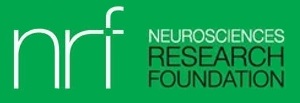Traumatic brain injury
On this page:
St George’s Hospital is a major trauma centre that treats the most severely ill emergency patients from across the south of England, including patients with trauma to the brain. Over 70% of patients admitted with polytrauma have also suffered a traumatic brain injury.
St George’s Hospital provides a seamless traumatic brain injury service from the point of arrival in the emergency department, through neurosurgery, neuro intensive care, hyperacute neurorehabilitation through to outpatient multi-disciplinary follow up, all on one site.
Neurosurgery may be carried out on patients with severe head injuries.
Some of the reasons for emergency neurosurgery include:
- a haemorrhage– severe bleeding inside the brain, such as a subarachnoid haemorrhage. This can put pressure on the brain and may result in brain injury and, in severe cases, death.
- a haematoma– a blood clot inside the head, such as a subdural haematoma, which can also put pressure on the brain.
- cerebral contusions– bruises on the brain.
- skull fracture
The traumatic brain injury team consists of a Consultant Neurologists, Consultant Neuropsychiatrist, Consultant Neurosurgeon, Neurology Specialist Registrar, Neuro-physiotherapist, Neuro-occupational therapist, Neuro- Speech and language therapist, Neuropsychologist, Social Worker, Dietician, Discharge Coordinator, Neurotrauma Coordinator and Neuro Critical Care Matron.
The multi-disciplinary team are highly specialist and are involved in the care of the patient from the point of discharge from neuro intensive care until the point of discharge. By being able to offer an intensive level 1 neurorehabilitation service as part of the inpatient therapy treatment, patients are able to return home quicker than they would otherwise be able to. Patients are then followed up in a complex traumatic brain injury multi-disciplinary clinic post discharge, which allows detailed communication between the acute team and the community neurorehabilitation services to occur.
Patient involvement is very important to the team, and patients are involved in service development and feedback at all points along the patient journey.
There is an active research group within the service, and current areas of research include tracking cognitive function over time post acute traumatic brain injury, the management of agitation in post traumatic amnesia, and preventing depression post traumatic amnesia. The team are involved in traumatic brain injury research and service development and delivery at both a national and an international level.
Contact details
If you are already a St George’s patient, you can contact your ward at any time if there is anything you are concerned about.
- Regional Neurology Unit (Kent Ward)
- Wolfson Acute Neurorehabilitation Unit
Other useful contact numbers:
Key staff
Dr Colette Griffin
Dr Ivy Ong
Dr Etienne Laverse
Dr Akshay Nair
Dr Hena Ahmad
Dr Camilla Clark
Mrs Fay Greenway


